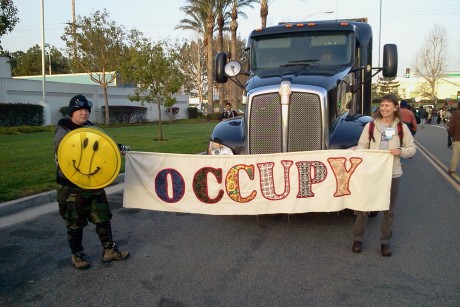Thursday, 07 June 2012
By Arun Gupta and Steve Horn, Truthout
The right is riding high, but workers and progressives may finally realize that change happens through collective action, not electoral politics.
Wisconsin Gov. Scott Walker did not win the June 5 recall vote because a parade of Daddy Warbucks stuffed his suit full of six-figure checks. The Democratic challenger Tom Barrett did not lose because he raised a scant $4 million to Walker’s $30 million war chest.
Walker won because he had a vision, however brutish, and he forged a rich-poor alliance that supports it. Barrett lost because he stood for nothing, because the Democrat Party shuns organized labor, because labor retreats from street politics even when they have the upper hand and because progressives confuse elections with movements.








